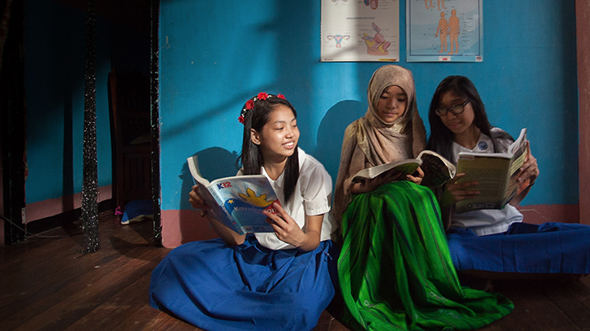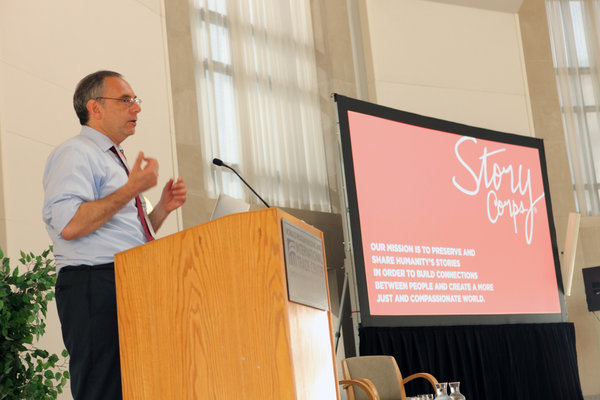The Johns Hopkins Center for Communication Programs (CCP) is excited to take part in the Family Planning Summit on July 11 in London. The gathering of policymakers, donors and advocates from around the world will discuss efforts to reach Family Planning 2020 (FP2020) goals and ensure that more women and girls around the world are able to plan their families and their futures.
The Summit is a follow up to a 2012 meeting where the global health community took a monumental step forward in the development of the FP2020 goal to enable 120 million more women and girls to use contraceptives by 2020.
On display at the Summit will be photographs and real stories from people passionate about family planning, featuring the work of Family Planning Voices (#FPVoices), an initiative by CCP’s Knowledge for Health (K4Health) Project, in partnership with FP2020. Among those who will be featured is Dr. Moji Odeku, project director of CCP’s Nigerian Urban Reproductive Health Initiative (NURHI).
CCP experts will also appear on Summit panels to share experiences from two highly successful programs:
- Moji Odeku will appear on a panel entitled, “Domestic Solutions for Sustainable Family Planning Financing to 2030 and Beyond,” which will consider the role of international resources, domestic accountability and the importance of sustainable financing. Odeku will also participate in the closing plenary entitled, “Changing Social Norms”, which will look at several entertainment-education projects, including NURHI’s “Get It Together“, and the potential role they can play in increasing the uptake of contraceptives.
- Halima Sheriff, director of Advance Family Planning in Tanzania, will appear on a panel entitled “Youth-led Accountability for the Delivery of the FP2020 Commitments,” which will focus on the progress made since the 2012 Summit on reaching adolescents and youth with effective family planning programs and the importance of engaging young people at all levels of policy and program development moving forward.
Through our projects across the globe, CCP uses strategic communication programs to empower women and families to make informed choices about their fertility and reproductive health, equip public health practitioners with necessary evidence-based tools and resources and help ensure local partners that they have the skills needed for programs that change lives. Investing in communication changes lives.
Youth, both as users of family planning and advocates for it, are at the center of much of our work. The Health Communication Capacity Collaborative (HC3), led by CCP, has created a suite of materials on long acting reversible contraceptives for youth, that are designed to be adaptable to a range of country contexts. To date, 17 organizations in 21 countries have asked to adapt the materials in five languages.
In March, working with the Indonesian government and the NGO community, we coordinated a youth summit in that nation attended by philanthropist Melinda Gates to develop a strategy to help Indonesian youth gain access to family planning services and galvanized them to help spread the word in local communities.
In the coming months, for the first time, HC3 will launch a new database on social and behavior change communication for family planning, placing compelling evidence of what works in the hands of those that need it.
Throughout its history, CCP has been a leader for family planning, working to give women — and entire communities — the knowledge, confidence and power they need to have healthy families. We look forward to continuing our efforts to ensure success for FP2020 will remain a driving force for change in tackling the challenges that lay ahead.





